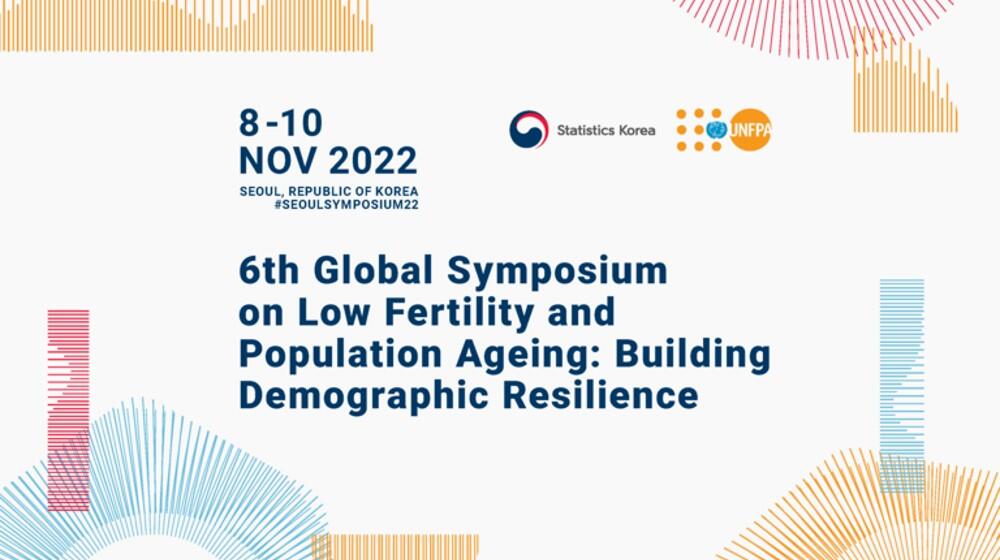SEOUL, Republic of Korea – In the month in which the world population is expected to reach 8 billion, a global symposium will discuss the implications of low fertility and population ageing and what can be done to respond to these trends that affect an increasing number of countries around the world.
The 6th Global Symposium on Aging and Low Fertility, co-organized by UNFPA, the United Nations Population Fund, and KOSTAT, the national statistical office of the Republic of Korea, focuses on the challenge of building resilience of societies to demographic changes.
Today’s world is more demographically diverse than ever before. While the global population will continue to grow for decades to come, population growth is no longer the overriding reality for all countries. In Europe and East and Southeast Asia, for example, population decline is an increasingly common phenomenon, posing new challenges and opportunities to countries and entire continents. These shifts in population structure are characterized by a fall in fertility, rising life expectancy and population ageing.
Already 60 per cent of people worldwide live in countries with fertility rates at or below replacement level (2.1 children per woman on average). Some 40 countries are projected to experience population
decrease by 2050.
The Global Symposium places the concept of demographic resilience at the centre of responses to changing demographic trends. This requires a shift away from essentially negative, reactive and fragmented responses towards anticipatory, comprehensive and integrated approaches enabling societies to thrive in a world of rapid demographic change.
The symposium will bring together some 120 parliamentarians, ministers and other decision-makers and experts from governments, civil society, academia and international organizations, who will participate in 7 high- level debates on the most prominent demographic changes, their drivers, their implications and policy responses. The debates include discussions on population ageing and population decline, low
fertility and migration, social policies and human capital, as well as gender and sexual and reproductive health and rights, among others.
The Global Symposium will be opened by the co-hosts, featuring Dr. Hoon Han, KOSTAT Commissioner, and Dr. Diene Keita, UNFPA Assistant Secretary-General and Deputy Executive Director, Programmes. For a full list of participants, please click here and find more information via https://asiapacific.unfpa.org/seoulsymposium22.
Journalists are invited to attend the opening session via Zoom on 8 November at 9:30-10:30, and symposium participants are available for media interviews.
Zoom participation: https://us02web.zoom.us/webinar/register/WN_Qtae6ip0SQ-aft5DYYJOVQ
For more information and requests for interviews, please contact:
Jens-Hagen Eschenbaecher
UNFPA Eastern Europe and Central Asia
eschenbaecher@unfpa.org
+905497483655
Etienne Leue
UNFPA Population and Development Branch
leue@unfpa.org
+19292569526


